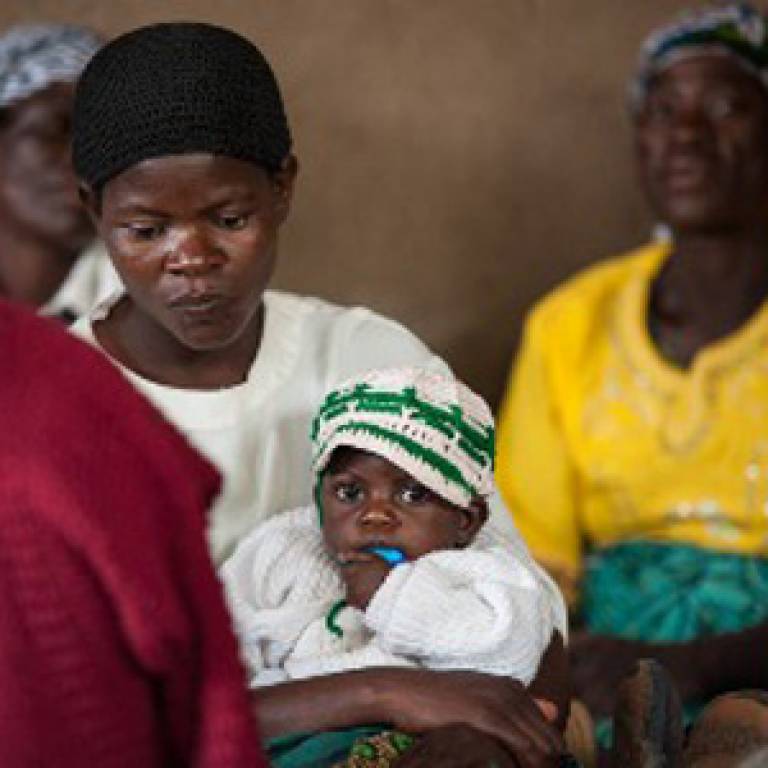£14M to develop HIV self-testing in southern Africa
4 December 2014
A partnership involving UCL has been awarded £14M to accelerate access to simple self-tests in African countries.
 Self-testing for HIV using rapid
diagnostic kits is becoming increasingly widely used, allowing high-risk people
to test their own HIV status in private.
Self-testing for HIV using rapid
diagnostic kits is becoming increasingly widely used, allowing high-risk people
to test their own HIV status in private.
Self-testing is now recommended in the USA and Europe, was recently introduced in Kenya, and is being evaluated for introduction in several other African countries. However, its use is controversial and remains illegal in many countries.
With the support of a $22M (£14M) investment from UNITAID, Population Services International (PSI) and its research partners UCL, the London School for Hygiene and Tropical Medicine and the World Health Organization will conduct the world's largest evaluation of HIV self-testing to date, in Malawi, Zambia, and Zimbabwe, with the view to scaling it up. The group will pilot HIV self-testing models among different populations and over the course of the two-year project will distribute nearly 750,000 HIV self-test kits and gather evidence about its effectiveness.
'UNITAID continually seeks new ways to improve access to better products to fight HIV/AIDS, TB and malaria," said Philippe Duneton, Deputy Executive Director of UNITAID. "For HIV, we're at the point where we need to rapidly increase the number of people tested in order to expand appropriate treatment coverage. New simple oral tests provide an option to broaden testing services, and help detect more people in need of care."
Research in Malawi suggests that many people find self-testing more acceptable than being tested by a health care worker in a clinic
Professor Frances Cowan
In Zimbabwe, where considerable piloting has already been undertaken, Professor Frances Cowan of UCL Infection & Population Health and the Centre for Sexual Health and HIV AIDS Research (CeSHHAR) Zimbabwe will lead the research to find out the most effective way of distributing self tests in rural communities and ensuring that self-testers subsequently engage with prevention and care services. Professor Andrew Phillips of UCL Infection & Population Health will be modelling the population level impacts.
Professor Frances Cowan said: "UNAIDS has recently set the ambitious 90-90-90 target to help end the HIV epidemic - 'By 2020, 90% of all people living with HIV will know their HIV status; 90% of all people with diagnosed HIV infection will receive antiretroviral therapy; 90% of all people receiving antiretroviral therapy will have viral suppression'. Currently however, fewer than 50% of Africans living with HIV know their status - poor uptake of HIV testing is one of the major barriers to achieving UNAID's 90-90-90 goal.
"Research in Malawi suggests that many people find self-testing more acceptable than being tested by a health care worker in a clinic. In this UNITAID funded project we will explore whether providing access to HIV self-testing at scale in Zimbabwe, Zambia and Malawi is feasible, acceptable and increases uptake of testing and access to HIV prevention and treatment services - particularly among key populations and poor rural communities."
The studies will investigate ways to distribute self-test products effectively, ethically and efficiently and answer key questions about the feasibility, acceptability and impact of this intervention. The project will use these results to support the establishment of appropriate policy and to encourage new manufacturers to enter the self-test market.
Links
Images
- Women attending clinic (courtesy of UNITAID)
 Close
Close

